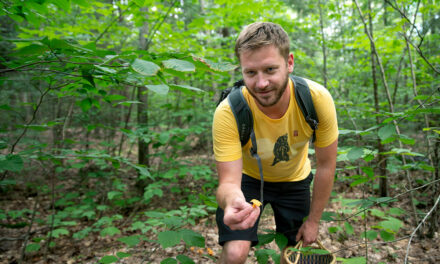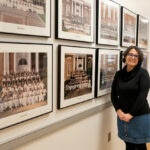
An Episcopal School, “A Timbered Choir”
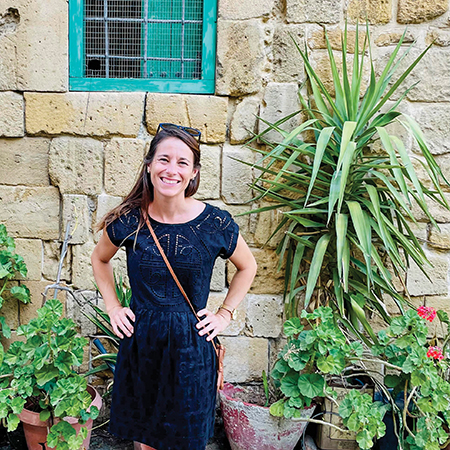
“A Timbered Choir”
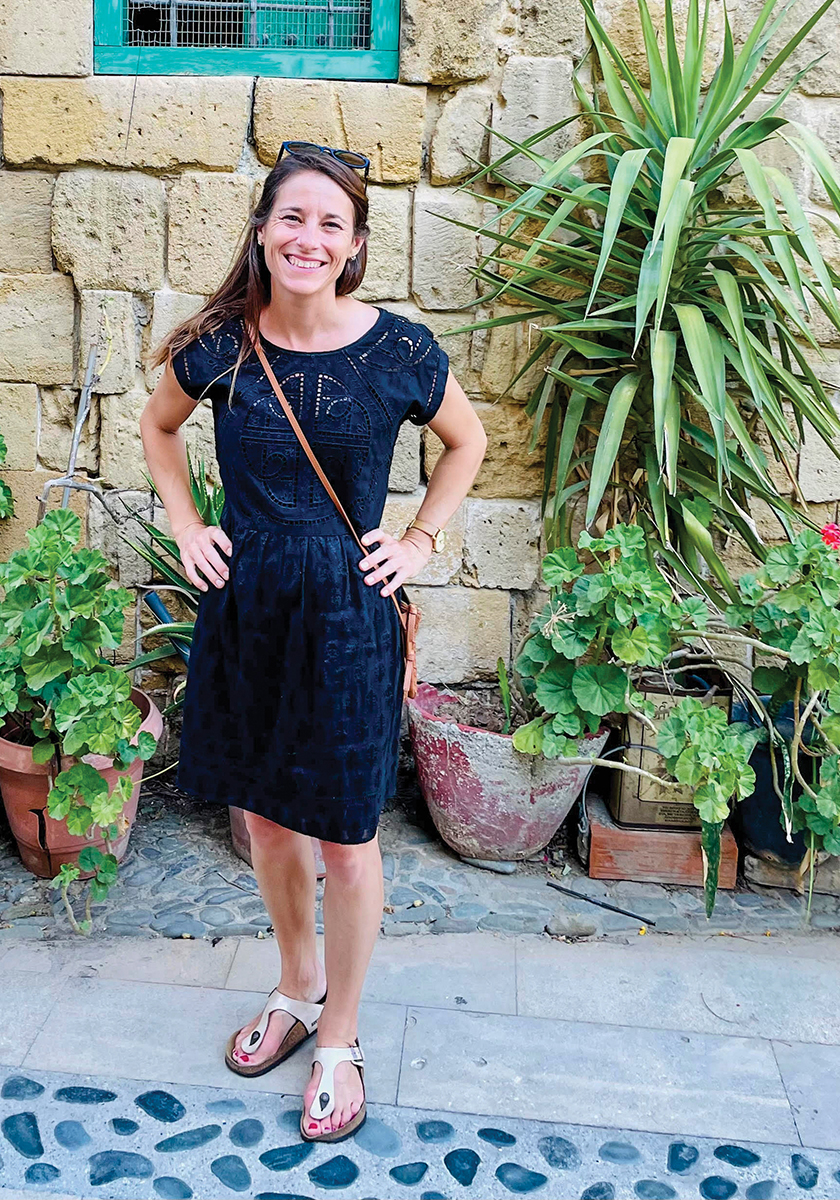
Middle School History Teacher Katherine Bryant received a Holden Summer Grant to spend the summer of 2022 in Lebanon, Cyprus, and Turkey. In addition to her historical research and travels, she worked at a summer camp for Syrian and Lebanese students. Katherine’s hope was to travel to some of the places considered to be the “crossroads of the world,” in order to explore and better understand the ancient and contemporary overlap of Europe and Asia and the rich and unique cultural features that these areas boast. In exploring these geographical and historical intersections, her primary goal as a learner was to be better equipped to facilitate dialogue and curate learning experiences for building global competency in her classroom and community. She shared her summer adventures through the following chapel talk.
“The righteous flourish like the palm tree and grow like a cedar in Lebanon. They are planted in the house of the Lord; they flourish in the courts of our God. They still bear fruit in old age; they are ever full of sap and green, to declare that the Lord is up right; he is my rock, and there is no unrighteousness in him.” Jeremiah 29: 1, 4-7; Psalm 92:12-15
This is a story about trees. It could just as easily be a story recounting my own hero’s journey. Not because I am suggesting in any way that I am a hero but rather that I’ve experienced the sweetness that is recognizing one’s smallness on the other side of a significant journey. This journey took me beyond my threshold into what was nothing short of an unknown world and, to paraphrase T.S. Eliot, brought me back to a place that I could know as if for the first time.
Great hero stories include great trees. From Gilgamesh’s perilous journey through the cedar-laden Realm of the Gods in ancient Mesopotamia, to Tolkien’s Forests of Mirkwood and Valinor in Middle Earth, even to Harry Potter’s encounters with the Whomping Willow.
Great trees also populate the redemptive arc that begins in the Old Testament: two trees in the Garden of Eden–The Tree of Life and the Tree of Knowledge of Good and Evil, the oak at Shechem where, in a significant moment of turning, Jacob buries his foreign idols, and, even the trees of the field clapping their hands, the prophet Isaiah’s foreshadowing of the alleluias of a fully restored creation.
The tree motif echoes throughout human history reminding us of life and inviting us into a greater story.
My own story begins with a vision of sorts and a heart that was set on tending to the olive trees that are prolific on the island nation of Cyprus. But, stilled by the meditative rows of olives, not quite ripe for harvest, I was met by the merciful reality that God could come as a whisper, and the Spirit nudged me forward with a promise in prayer, “I have something to show you.”
I went searching for olive trees and landed among the Cedars.
And so, I ventured from Cyprus to Lebanon. For centuries, Lebanon’s snow-capped mountains and forests have been a safe haven for religious minorities. An anomaly in the region, Lebanon is marked by multiculturalism and the coexistence of many faith traditions. A French author visiting the capital city of Beirut described that “Lebanon condensed and summarized in itself all the problems of the modern world, and that if only one of these problems could be resolved in Lebanon, it could then serve as a model solution for the rest of the planet.” Put simply, Lebanon is a complex place.
Living in Beirut for the summer, I was witness to a small glimpse of the daily complexities facing the people of this country. Lebanon’s modern history includes a civil war, a failed state characterized by government corruption, and a failure to provide basic services such as continuous electricity and potable water. In March 2019, citizens marched under the rallying cry ‘the country is burning,’ as its triple-digit inflation rivaled that of Venezuela. By 2020, the onslaught of a global pandemic and finally, the Port Blast on August 4, 2020, left the city a shell of its former glory. It is not shocking that I was met with a touch of skepticism when sharing my interest in pitching my tent in Beirut for the summer.
“Maybe you came here because the Cedars of Lebanon are mentioned 103 times in the Bible?!” This was the routine question of the many interviews conducted from the driver seat of taxi cabs as I traversed the country. I came to understand that the cedar meant far more to the Lebanese people than what I could glean from the emblem on their beloved flag. This tree is a galvanizing symbol for strength and resilience in all circumstances. Lebanese artist Alice Mogabgab said that the cedar tree is ‘the only shelter in which the Lebanese can find peace.’
Trees are some of the oldest living organisms and, in the Ancient World, trees were the source of life. In the cradle of civilization, all of life took place on and in the land. For a region characterized by “wilderness,” essentially desert, it is no wonder that where trees flourished, water flowed, and that these were the most sacred of spaces.
The abundance of cedar trees connected Lebanon to the vast trade networks of the ancient Silk Roads and furthered empires of the ancient world. The durable and fragrant timber was crafted into merchant vessels by the Phoenicians. The ancient Egyptians, with highly sophisticated rituals to honor the dead, carved elaborate sarcophagi from the wood and used the resin for mummification. 19th c. French historian Alphonse de Lamartine claimed, “The Cedars know the history of the earth, better than history itself.”
Far from the olive trees of Cyprus, I found myself standing in the Kadish Valley of Northern Lebanon, confronted with the aptly named Cedars of the Gods. An otherworldly enclave surrounded by ancient giants ever green, one can hold all the complexities of life with both hands. Soil and sky. Light and dark. Broken and whole. Insecure, fully known. Grieving and hopeful. Here and not yet. I closed my eyes. As if on cue, a stanza from a long-ago memorized Wendall Berry poem sings over me:
Slowly, slowly, they return
To the small woodland let alone:
Great trees, outspreading and upright Apostles of the living light.
Patient as stars, they build in air. Tier after tier a timbered choir,
Stout beams upholding weightless grace Of song, a blessing on this place.
I stood in awe of these trees towering above me and allowed their outstretched boughs to direct my gaze to their infinitely larger Creator. I was made small in their presence, but they, too, are but a speck in the expanse of Creation. I marveled at their existence, and I wondered about the throughlines of their story. What wisdom would these ancient trees offer to God’s people who we see exiled in the unfamiliar territory of the Babylonian Empire in this morning’s reading? What wisdom would these ancient trees offer to us? Here’s what I’ve gathered:
First, Cedars are rooted, flourishing exactly where they are planted.
Cedrus libani is one of four species of its genus. Common name, Cedars of Lebanon, these coniferous trees grow in the arid climate of the Eastern Mediterranean. They are the southernmost Cedar population found in Lebanon, Syria, and Turkey at elevations between 4,000-6500 ft above sea level. They soar to heights ranging from 65-90 feet. The deep-running root system of the Cedar is perfectly suited to the rocky soil conditions. The trees are healthiest when their sweeping branches have room to spread. The Psalmist tells us these trees flourish because they are planted “in the house of the Lord.” “In His courts,” God’s people find boundary lines that fall in pleasant places even in exile. We, too, can acknowledge that all earthly terrain is at least vaguely foreign when eternity is written on our hearts.
Second, Cedars are only satisfied by the provisions of their Maker.
Cedar trees grow on high, rocky outcrops spectacularly thriving amidst harsh weather conditions and rugged terrain. As such, they are dependent on humans for neither cultivation nor caretaking. No, it is the God of creation that tends to them! They are fully known and cared for. “Full of sap”—more simply stated in the original Hebrew text as “ever full”—cedars are satiated; they have just what they need.
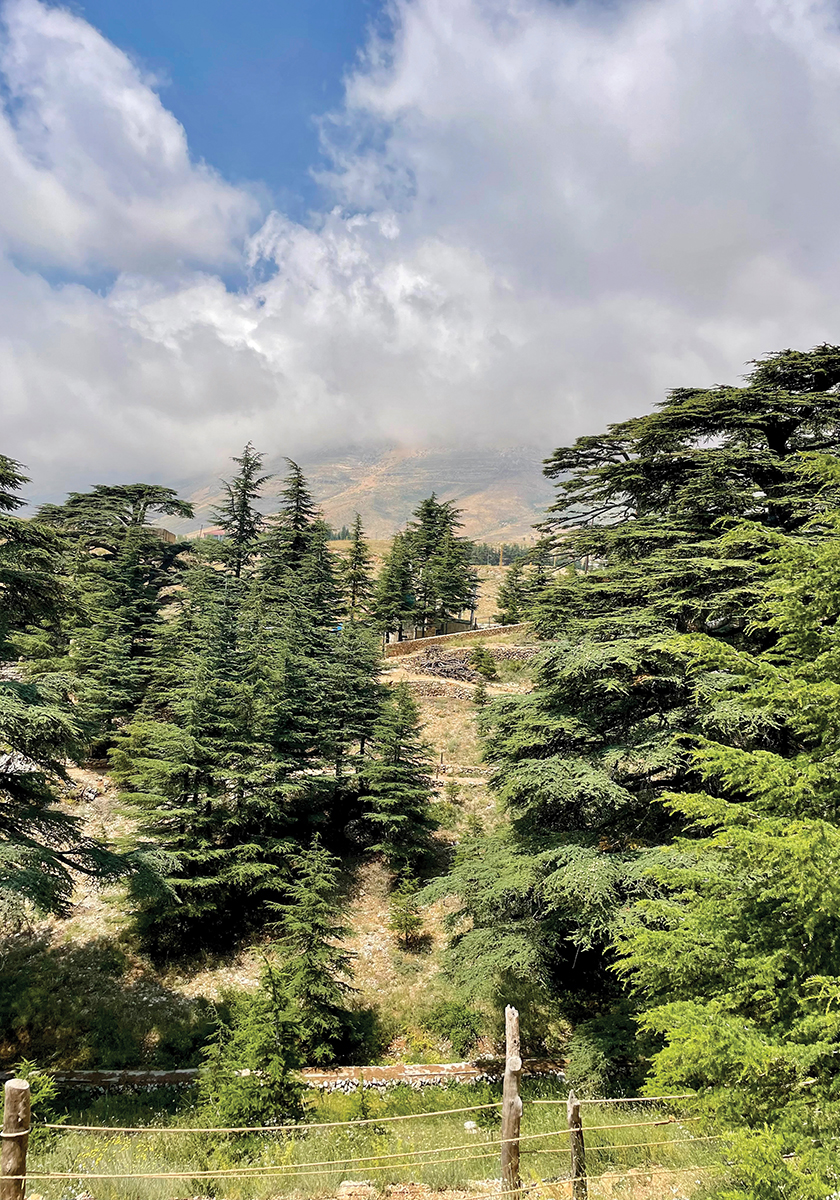
The people in exile are told to build houses, live in them, plant gardens, eat from them. Essentially, keep doing life. Pray to the Lord and trust that your immediate welfare is tied up in His overarching plans for you and all of creation. As we begin to embrace our own dependence on our Maker, we can sink into a deeper rest and are freed from anxious toil. We can be joyful and committed where we are—even in exile. We are not overcome by our circumstances but, rather, we are held by a God who promises more than the present reality.
Lastly, Cedars are upright and generative, thinking beyond the present and bearing fruits that outlast themselves.
“The Cedars remind us that we are part of a much greater story. The trees garner wisdom over centuries and outlast the cultural influences of both the Babylonian Empire and the empires of our present age.”
These hardy trees are known for their longevity, typically a 300 year lifespan, although some are thought to be nearly 1,000 years old. There is a humility in their unique growth pattern. Cedars mature slowly, growing just 20 inches in their first 20 years. Pyramidal in youth, cedars grow vertically for many years before spreading into their more recognizable broad, densely needled canopy. It’s reminiscent of the vertical reconciliation required between God and man before man can have horizontal peace with his neighbors. In uprightness, the cedars declare that God is their Rock. In their humility, they can contribute to the flourishing of an ecosystem of which they are only one small but integral part. God’s people in exile are told to add to the faithful generations thinking beyond their
individual lives and circumstances, instead adding to the collective story. I’m reminded of the brilliant Baroque composer Bach. He wrote at the end of every single piece of music, “to God be the Glory.” He had a sense of his smallness and yet he contributed to something much larger than himself. Maintaining a right perspective, he stewarded his gifts to offer the generations beyond him a canorous glimpse of a restored creation.
The Cedars remind us that we are part of a much greater story. The trees garner wisdom over centuries and outlast the cultural influences of both the Babylonian Empire and the empires of our present age. And, while our current culture would beg you to believe it’s all about you, It is not. The Cedars tell a different story: we are small and still God invites us to be a part of His great story.
Amidst the brokenness I encountered both in myself and my surroundings, I was overcome by the glimmers of hope I witnessed in the ways that people celebrated each other, welcomed me—a stranger—in, planted, reaped, remained rooted as Cedars by a promise that was fulfilled on another great tree.
I pray that on your own journey you will find the rest and the freedom that comes from the blissful awareness that you are very small and that God is boundless in mercy and provision. In our greatest trials and our greatest accomplishments, may we joyfully proclaim “to God be the Glory.” Knowing that our “smallness”is a part of something greater—”a timbered choir,” an exiled people who are still called to live on the land toiling together, planting gardens, while we wait for a day when, like the snow finally melting in Narnia, we will gather ’round an eternally abundant feast where all of creation—yes, even the Cedars—are clapping their hands in a collective ‘Hallelujah.’
To God be the Glory.


